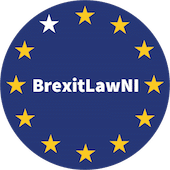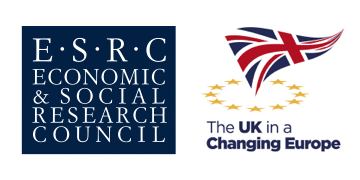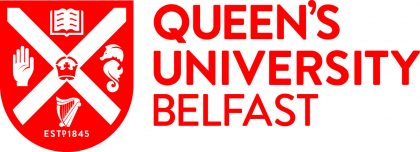Brexit and the risks of a ‘racist’ land border in Ireland
By Daniel Holder
The recent UK Government Northern Ireland and Ireland Position Paper describes the Common Travel Area (CTA) as “a special border-free zone comprising the UK, Ireland, the Channel Islands and the Isle of Man.”
Accordingly UK Immigration law – the Immigration Act 1971 – debars passport control on journeys within the CTA, including those on the Ireland-Northern Ireland land border. Save for a brief period of suspension in the Second World War, this arrangement has existed since partition in 1921-2. The CTA is, however, about the freedom of movement of people; before the accession of both countries to the European Union (EU) and the establishment of the Single Market there were customs controls. As the UK paper sets out, in 1972 at the beginning of the ‘Troubles’ – which also saw heavy militarization of border crossings – there were 17 HM Customs and Excise Posts at major crossing points with 200+ other crossings not approved for vehicles. The advent of the EU Single Market in 1992 ended outstanding customs controls. The peace process that was to follow a few years later led to complete demilitarisation of the border and the opening of all border roads. The CTA as a passport free zone persisted throughout these developments.
Back in 2008 however the CTA was all set for change. A clause in the then Borders, Citizenship and Immigration Bill in Westminster was to amend the 1971 Act and allow for border control checks on journeys within the CTA. The policy intention was not to introduce fixed border controls along the length and breadth of the land border. With 310 miles and the vast majority of crossings being very much in the course of local journeys, this in itself would have been very costly, disruptive and impractical. In addition, as the recent UK position paper recognises, such border controls would be incompatible with a number of binding commitments under the Good Friday Agreement (GFA). Rather the proposal was for ‘ad hoc’ mobile immigration patrols which we were told would only target ‘non British and Irish citizens’. British and Irish citizens were to continue not to have to carry passports or other identity documents, but citizens from the rest of the planet would be expected to. This was to be complemented by ID checks of people travelling between Northern Ireland ports and airports and Great Britain.
The Northern Ireland Human Rights Commission, itself a creation of the GFA, raised concerns centred round the obvious question as to how ‘ad hoc’ controls were going to tell who was a British and Irish citizen and who was not? Who would have to carry a passport or face questioning and even administrative detention for not doing so? There were well grounded concerns in experience at both home and abroad that the arrangement would have led to widespread racial profiling – the form of racial discrimination whereby persons are singled out on the basis of skin colour, or other ethnic indicators such as a non-approved accent for questioning and potential detention. Ultimately in 2009 these concerns, alongside the broader concerns of unionists regarding the port and border checks which effectively constituted internal UK immigration controls, proved too much. The House of Lords voted down the clause and government retreated.
Seemingly undeterred by the will of Parliament UK Immigration Officers in Northern Ireland have nevertheless conducted some ‘ad hoc’ checks, arguing they were ‘voluntarily’ asking for ID. Such actions have borne out concerns about ethnic profiling. One recent example concerns the widely reported case of woman in Belfast City airport compensated after being singled out by an immigration officer for ‘looking foreign’. She maintained she was stopped because she is black. Notably she was not even a passenger, but was just dropping off someone at the airport. A staggering 468 people accused of being irregular migrants were detained in such Northern Ireland operations in 2014-2015. Seemingly unsatisfied by even this UKIPs then local leader and only member of the Northern Ireland Assembly David McNarry MLA, called for called for troops with helicopter air support to be deployed on to the border to ‘make it safe’. The current UK position paper refers to the current situation as one whereby CTA border are not subject to border controls, but adds ‘or’ only are to a ‘minimal extent’.
The policy of the UK and Irish governments following the defeat in Parliament was to enter into a 2011 Memorandum of Understanding on convergence of their systems in the CTA. This dealt with visa decision making prior to external entry to the CTA, data sharing and potential mutual visitor visas. Whilst ‘ad hoc’ checks continue they are not on the industrial scale that would have been likely had government succeeded in getting an actual clear legal power to conduct them. The macro policy direction was one of convergence between Irish and British immigration systems.
This direction of travel has been brought to an abrupt halt by BREXIT. There will be no further convergence as Ireland has freedom of movement for 26 other EU member states that the UK will not. Whilst the UK government points to the CTA pre-dating the EU, this overlooks that this refers to a period when neither state was in the common market. The CTA has existed when neither state was a member of the EU and when both were members. BREXIT brings a new situation with one state in and one state out, and the external frontier with the whole EU is to be drawn in the middle of the island of Ireland.
Non-visa nationals (i.e. countries that don’t require visas, such as many in the Americas) to enter the UK or Ireland can still be and are subject to decisions at ports and airports of external CTA entry. Any suggestion that Ireland should do this on behalf of the UK in relation to EU nationals post Brexit is a clear non-starter. As EU nationals will continue to have freedom of movement and to exercise EU treaty rights when entering the CTA in Ireland, they could not be questioned in this way on arrival at Dublin airport or any other entry point. The UK itself has retreated from suggestions that it could outsource its border to Ireland.
The CTA could continue unchanged if the UK took the view that there is no pressing need whatsoever to have any further immigration control in to the UK, as is the case between the UK and the Isle of Man (which is not in the EU). Yet this does not appear to be Government’s post-BREXIT position. The BREXIT campaign was in essence a successful mobilisation by those on the furthest right of the UK political and media spectrum, and centred on the politics of increased immigration control. Leave campaigners even used the slogan ‘Taking Back Control of our borders’, whilst at the same time senior figures sought to provide Northern Ireland with reassurance that there would continue to be no border controls in the only place there actually is a land border with the rest of the EU. This flat contradiction could not continue post-referendum and the language subsequently began to change with the Prime Minister’s reassurances that there would not be ‘any return to the borders of the past’ or that there would be ‘as seamless and frictionless a border as possible’.
The post-referendum ascendancy of a ‘hard’ Brexit position amongst those in Government makes the issue of the border much more problematic. The government is now dependent on Democratic Unionist Party (DUP) support. The DUP supports a hard Brexit, opposes the GFA, and in terms of immigration control take a position that would not be out of place in a UKIP manifesto. Back in 2015 the DUP list of wants from Westminster in the event of a hung parliament included ‘To ensure economic migrants must have contributed to the UK before they are entitled to claim benefits’ and ‘proper border controls and a tougher immigration policy’. The DUP have also made it a red line that there will be no passport checks on journeys between Northern Ireland and Great Britain.
With assurances there will be no return to a ‘hard’ border and clear practical barriers to this ever happening will government now re-visit the 2008 plans to legislate for ‘ad hoc’ checks on ‘non CTA nationals’ on the land border and revive the prospect of a ‘racist border’?
The UK Position Paper sets out its proposals, but with little clarity. The paper says some nice things about wanting everything to remain the same, which somewhat overlooks the context of BREXIT. This is the case with customs issues: the UK will exit the EU, single market and Customs Union but would like there to be no, or minimal, customs checks. This seems to be unlikely, to say the least, and with customs and immigration officers now in one unified agency any checks on goods will inevitably creep towards checks on people.
In relation to border controls in the CTA, between the nice words there are some worrying signs in the Position Paper to a sceptical eye. The paper sets out that entry to the UK from the CTA will be “free from routine border controls” (emphasis added), that it wants to preserve the rights of British and Irish citizens “as enjoyed today” and that in relation to cross border workers the UK wants to protect the “ability of British and Irish nationals to work without hindrance across the border between Northern Ireland and Ireland” but notes that the wider “whole border and immigration controls for EEA nationals (other than Irish nationals) can only be addressed as part of the future relationship between the UK and the EU.”
The paper also goes on to emphasise that immigration controls are not about checks on the physical border but rather through measures at the level of the labour market or through social security provision. This latter provision leads to the prospect that in addition to ‘ad hoc’ checks by immigration officers, immigration controls may be subcontracted to public services, employers and landlords – where there is likely to be even more racial profiling. The proposals add up to indicating Northern Ireland will become the most immigration policed-area of these islands by stealth. Great efforts have been made in the peace process to reform law enforcement to ensure human rights compliance; imagine the regression with a ‘UK border force’ exercising powers in a discriminatory manner and using administrative detention on an industrial scale. The future appears anything but seamless and frictionless for ethnic minorities north and south of the border in the post-BREXIT world.
*This is an extended version of a blog written for the UK in a Changing Europe. The original version can be found here.





